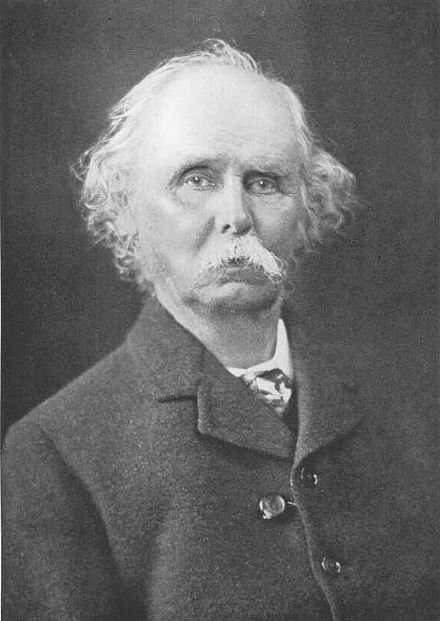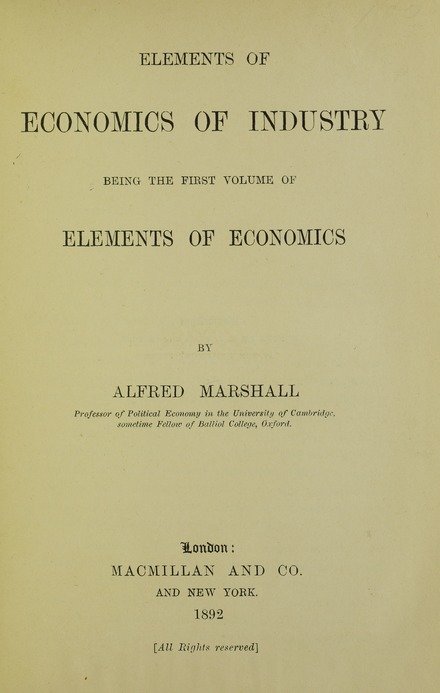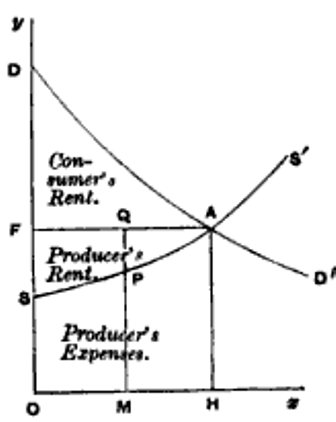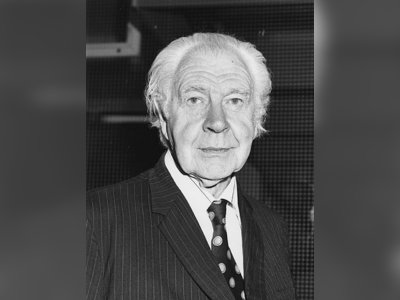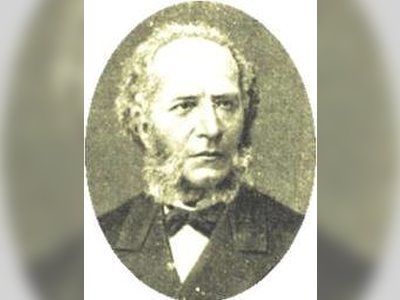British Heritage
Remember, Cherish, Learn.
beta
Alfred Marshall - The Venerable Grandfather of Economics
Contribution to British Heritage.
Alfred Marshall, a prominent English economist, left an indelible mark on British heritage through his groundbreaking contributions to the field of economics. Born in London on July 26, 1842, Marshall displayed exceptional aptitude in mathematics during his education at the Merchant Taylors' School and St John's College, Cambridge. Although initially drawn to physics, he experienced a mental crisis that led him to shift his focus to philosophy and ultimately economics. Marshall's interest in improving the working class's material conditions drove him to explore economic principles that would positively impact society.
His significant involvement in British academic institutions, such as Cambridge University, Bristol University College (later the University of Bristol), and Balliol College, Oxford, played a vital role in shaping the development of economics as an academic discipline in the United Kingdom. In 1885, Marshall returned to Cambridge and became a professor of political economy, a position he held until his retirement in 1908. During his tenure, he actively engaged with influential British thinkers, including Henry Sidgwick, William Stanley Jevons, John Maynard Keynes, and many others.
Marshall's most notable work, *Principles of Economics*, published in 1890, became a seminal textbook in England for many years, significantly influencing the teaching of economics in English-speaking countries. In this comprehensive treatise, Marshall integrated various economic ideas, including supply and demand, marginal utility, and costs of production, into a coherent framework. His contributions to neoclassical economics solidified his reputation as one of the founders of this economic school, shaping mainstream economic thought for the next half-century.
Alfred Marshall's remarkable success in the field of economics earned him the title of "The Venerable Grandfather of Economics." His work laid the foundation for the development of economic thought and the establishment of economics as a respected, academic, and scientifically founded profession. He meticulously utilized diagrams to elucidate complex economic concepts, thereby enabling a visual representation of fundamental economic theories and principles.
Marshall's graphical representation of supply and demand through the standard supply and demand graph became a cornerstone of economic analysis. This model, now employed by economists worldwide in various forms using different variables, enabled a clear and concise illustration of economic fundamentals that were previously confined to verbal explanations.
His theoretical contributions, such as the concept of consumer and producer surplus, the price elasticity of demand, and the distinction between internal and external economies of scale, added depth and precision to economic analysis. Marshall's emphasis on partial equilibrium models, which he believed were more practically useful due to the dynamic nature of economics, further solidified his impact on economic theory.
Moreover, Marshall's influence extended to the realm of economic geography, where his observations on social and cultural relations in industrial districts sparked later discussions on clustering and learning organizations. His insights contributed to the understanding of the dynamics of industrial clusters and their economic significance.
Beyond his scholarly accomplishments, Marshall's dedication to improving the economic conditions of the working class, his commitment to ethics and social philosophy, and his even-handed approach to controversial topics earned him the respect and reverence of fellow economists. His students, including renowned figures such as John Maynard Keynes and Arthur Cecil Pigou, furthered his legacy by becoming leaders in the field of economics.
Marshall's invaluable contributions to economics and his commitment to scientific rigor continue to shape the field, making him a central figure in the development of British economic heritage. His work continues to be celebrated through various honors, with institutions and societies, such as the Marshall Library of Economics at Cambridge University and the Marshall Society at Cambridge, bearing his name. His enduring legacy remains an integral part of British intellectual and academic history. Marshall passed away at the age of 81 on July 13, 1924, leaving behind a profound impact on the study of economics, both in the United Kingdom and around the world.
His significant involvement in British academic institutions, such as Cambridge University, Bristol University College (later the University of Bristol), and Balliol College, Oxford, played a vital role in shaping the development of economics as an academic discipline in the United Kingdom. In 1885, Marshall returned to Cambridge and became a professor of political economy, a position he held until his retirement in 1908. During his tenure, he actively engaged with influential British thinkers, including Henry Sidgwick, William Stanley Jevons, John Maynard Keynes, and many others.
Marshall's most notable work, *Principles of Economics*, published in 1890, became a seminal textbook in England for many years, significantly influencing the teaching of economics in English-speaking countries. In this comprehensive treatise, Marshall integrated various economic ideas, including supply and demand, marginal utility, and costs of production, into a coherent framework. His contributions to neoclassical economics solidified his reputation as one of the founders of this economic school, shaping mainstream economic thought for the next half-century.
Success and Legacy
Alfred Marshall's remarkable success in the field of economics earned him the title of "The Venerable Grandfather of Economics." His work laid the foundation for the development of economic thought and the establishment of economics as a respected, academic, and scientifically founded profession. He meticulously utilized diagrams to elucidate complex economic concepts, thereby enabling a visual representation of fundamental economic theories and principles.
Marshall's graphical representation of supply and demand through the standard supply and demand graph became a cornerstone of economic analysis. This model, now employed by economists worldwide in various forms using different variables, enabled a clear and concise illustration of economic fundamentals that were previously confined to verbal explanations.
His theoretical contributions, such as the concept of consumer and producer surplus, the price elasticity of demand, and the distinction between internal and external economies of scale, added depth and precision to economic analysis. Marshall's emphasis on partial equilibrium models, which he believed were more practically useful due to the dynamic nature of economics, further solidified his impact on economic theory.
Moreover, Marshall's influence extended to the realm of economic geography, where his observations on social and cultural relations in industrial districts sparked later discussions on clustering and learning organizations. His insights contributed to the understanding of the dynamics of industrial clusters and their economic significance.
Beyond his scholarly accomplishments, Marshall's dedication to improving the economic conditions of the working class, his commitment to ethics and social philosophy, and his even-handed approach to controversial topics earned him the respect and reverence of fellow economists. His students, including renowned figures such as John Maynard Keynes and Arthur Cecil Pigou, furthered his legacy by becoming leaders in the field of economics.
Marshall's invaluable contributions to economics and his commitment to scientific rigor continue to shape the field, making him a central figure in the development of British economic heritage. His work continues to be celebrated through various honors, with institutions and societies, such as the Marshall Library of Economics at Cambridge University and the Marshall Society at Cambridge, bearing his name. His enduring legacy remains an integral part of British intellectual and academic history. Marshall passed away at the age of 81 on July 13, 1924, leaving behind a profound impact on the study of economics, both in the United Kingdom and around the world.
- Alfred Marshallen.wikipedia.org
